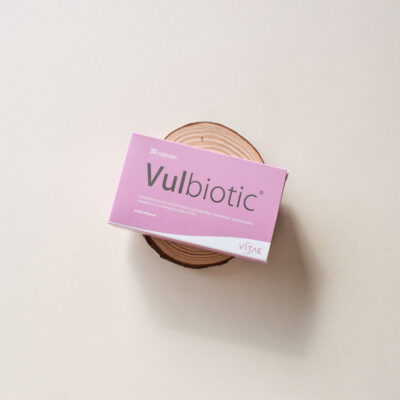Urinary infections are more common for women because the urethra is shorter and closer to the rectum. Therefore, it facilitates the entry of bacteria into the urinary tract. 50% of women will suffer it throughout their lives and 25% will experience a recurrent urinary tract infections. Most recurrences are caused by a bacterium you’re sure familiar with, Escherichia. coli ( E. coli ). At times of the year such as summer, factors like temperature changes between the bathing water and the outside, increased sweating, sand and humidity from swimsuits favor the growth of microorganisms and bacteria, which affects areas such as the vaginal area.
Types of urinary infections. What are the most recurring?
Cystitis
It is a urinary infection that affects the bladder and is the most frequent infection of the urinary system and of the whole organism after respiratory infections. In a normal situation, they can disappear after 24 or 48 hours after starting the treatment.
Cystitis symptoms
- Intense and constant need to urinate.
- Painful and burning sensation when urinating.
- Frequent urination small amounts.
- Blood in the urine.
- Cloudy urine and strong odor.
- Pelvic discomfort.
- Feeling of pressure in the lower abdomen area.
- Slight fever.
Urethritis
It is the inflammation, swelling, and irritation, of the urethra , the tube that carries urine from the body. It can be caused by bacteria or viruses.
Urethritis symptoms
In women:
- Abdominal pain.
- Burning pain when urinating.
- Fever and chills.
- Pelvic pain.
- Vaginal discharge.
- Pain in sexual intercourse.
In men:
- Blood in the urine or semen.
- Burning pain when urinating.
- Penile discharge.
- Frequent or urgent urination.
- Sensitivity, itching, or swelling of the penis.
- Swollen lymph nodes in the groin area.
- Pain during intercourse or ejaculation.
How often is a urinary infection considered chronic?
A urinary infection is considered chronic when the infection persists over time or recurs frequently, when the infection appears every month, despite having been treated with a correctly established antibiotic. When the infection becomes chronic, it is usually due to poor bladder emptying, the existence of kidney stones or residues after urination, among others.
What can cause recurrent urinary tract infections?
- Frequent sexual activity: it usually causes more urinary infections, since urethral massage, favored during sexual activity, can facilitate the ascent of bacteria to the bladder. Sexually active women will be more likely to suffer from urinary infections.
- Types of contraceptives: the use of vaginal diaphragms as a contraceptive can increase the risk of developing these types of infections.
- Hormonal changes: pregnancy, childbirth, the puerperium, menopause or aging are different stages that women experience, that is, there is a continuous hormonal change in all of them. In any of these stages, infections may appear due to changes in vaginal pH.
- Menopause: at this stage of the woman there may be a greater predisposition to the appearance of more infections, due to urinary incontinence, vaginal atrophy, diabetes, previous gynecological surgery and the presence of pelvic organ prolapse such as cystocele or fallen bladder.
- Genetic factors: it is common for a woman with repeated urinary tract infection, her mother has suffered from them very frequently. Today it is known that people with blood group B (group B and AB) have a greater susceptibility to urinary tract infections caused by enterobacteria gram negative, such as E. coli , more than those other women with blood groups A and O.
- Compromised health states: diabetes, chronic renal failure, immunosuppression states, chemotherapy or radiotherapy treatments can favor recurrent infections.
- Inadequate antibiotic treatments: when you find yourself in a situation of inadequate antibiotic treatment, it can favor the appearance of a recurrent urinary infection, due to the alteration of the vaginal and intestinal microbiota.
Tips to prevent urinary tract infections
- Hydration: Drinking plenty of water will help dilute your urine, therefore making you go to the toilet more frequently, allowing bacteria to be flushed out of your urinary tract before any infection can set in.
- Avoid tight underwear: the intimate area needs to have adequate perspiration, because it will help prevent infections. So, it will be better to wear loose-fitting underwear and breathable fabrics, such as cotton.
- Dry intimate area: after the beach or the pool, the best thing to do is to keep the vaginal area as dry as possible, avoiding wearing a wet swimsuit for many hours, since it is the perfect setting for bacteria to cause infections. Therefore, it is best to change clothes after bathing.
- Neutral soaps for the intimate area: a good soap for the intimate area should be chosen, since perfumed soaps can irritate the sensitive area, increasing the risk of bacteria appearing.
- Going to the toilet before and after sexual activity: it is very important to urinate once the sexual act is over, since it reduces the possibility of bacteria being lodged in the vicinity of the urethra.
Vitae solution
From Vitae, we want to help you to enjoy this summer to the maximum with one of our products: UrinVita .
It is a natural food supplement based on pomegranate extract, grape extract, cranberry and rosemary. Thanks to its proanthocyanidin and procyanidin content, it contributes to the well-being of the urinary system. The extracts of pomegranate, grape, cranberry and rosemary have antioxidant, anti-inflammatory, antibacterial activity and a protective effect on the urinary tract. In addition, the synergy of these components helps to break and prevent the adhesion of bacterial biofilms .






